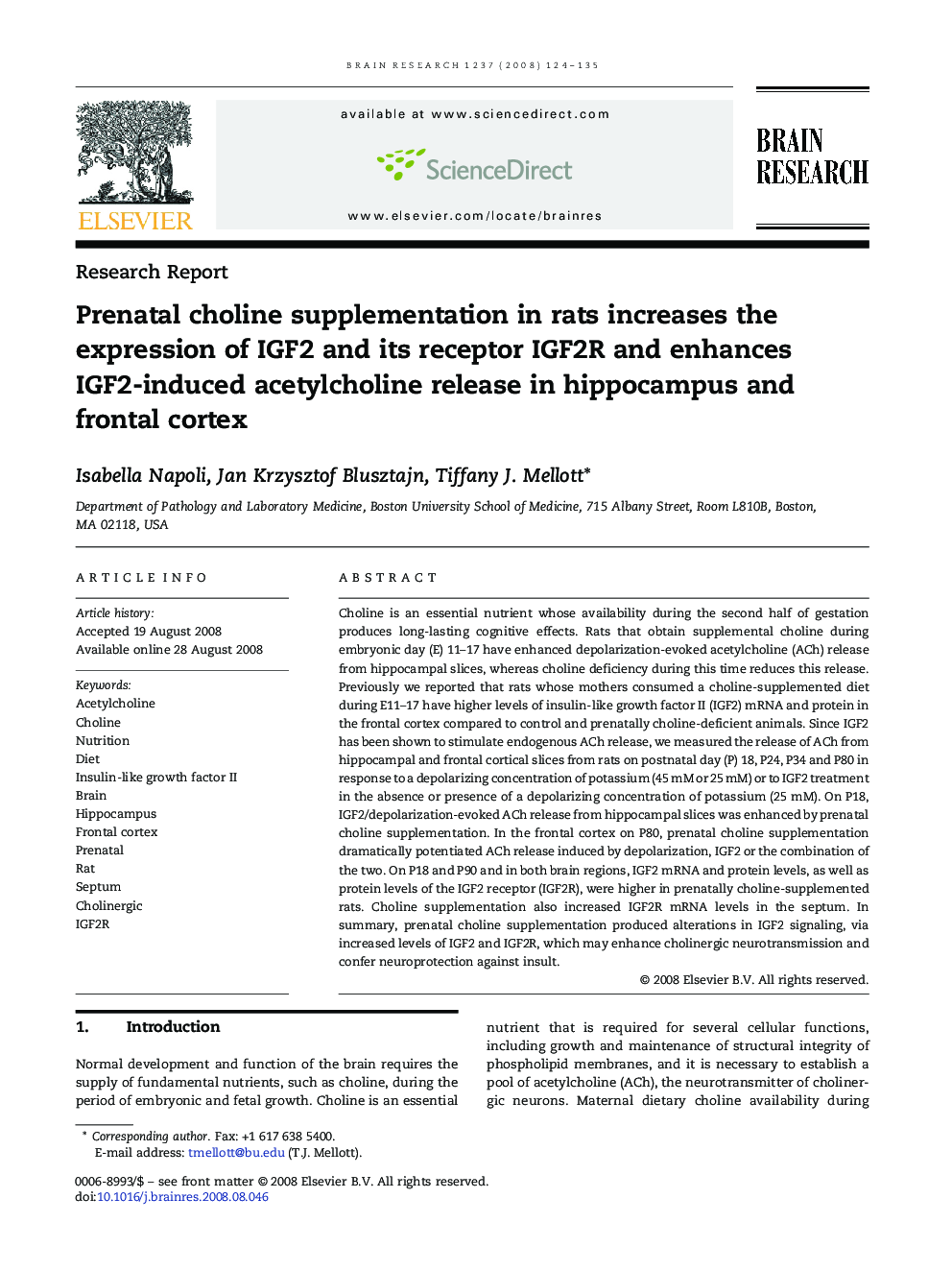| Article ID | Journal | Published Year | Pages | File Type |
|---|---|---|---|---|
| 4329262 | Brain Research | 2008 | 12 Pages |
Choline is an essential nutrient whose availability during the second half of gestation produces long-lasting cognitive effects. Rats that obtain supplemental choline during embryonic day (E) 11–17 have enhanced depolarization-evoked acetylcholine (ACh) release from hippocampal slices, whereas choline deficiency during this time reduces this release. Previously we reported that rats whose mothers consumed a choline-supplemented diet during E11–17 have higher levels of insulin-like growth factor II (IGF2) mRNA and protein in the frontal cortex compared to control and prenatally choline-deficient animals. Since IGF2 has been shown to stimulate endogenous ACh release, we measured the release of ACh from hippocampal and frontal cortical slices from rats on postnatal day (P) 18, P24, P34 and P80 in response to a depolarizing concentration of potassium (45 mM or 25 mM) or to IGF2 treatment in the absence or presence of a depolarizing concentration of potassium (25 mM). On P18, IGF2/depolarization-evoked ACh release from hippocampal slices was enhanced by prenatal choline supplementation. In the frontal cortex on P80, prenatal choline supplementation dramatically potentiated ACh release induced by depolarization, IGF2 or the combination of the two. On P18 and P90 and in both brain regions, IGF2 mRNA and protein levels, as well as protein levels of the IGF2 receptor (IGF2R), were higher in prenatally choline-supplemented rats. Choline supplementation also increased IGF2R mRNA levels in the septum. In summary, prenatal choline supplementation produced alterations in IGF2 signaling, via increased levels of IGF2 and IGF2R, which may enhance cholinergic neurotransmission and confer neuroprotection against insult.
